PM Oli urges world community to respond to escalating climate crisis with shared wisdom and strong determination
Kathmandu: Nepal has officially opened the first-ever Sagarmatha Sambaad today in Kathmandu with a powerful call for urgent global climate action and deeper international cooperation to address the mounting climate crisis, particularly in fragile mountain ecosystems.
The forum is named after Mount Everest, known locally as Sagarmatha. The theme of this year’s event is “Climate Change, Mountains and the Future of Humanity.”
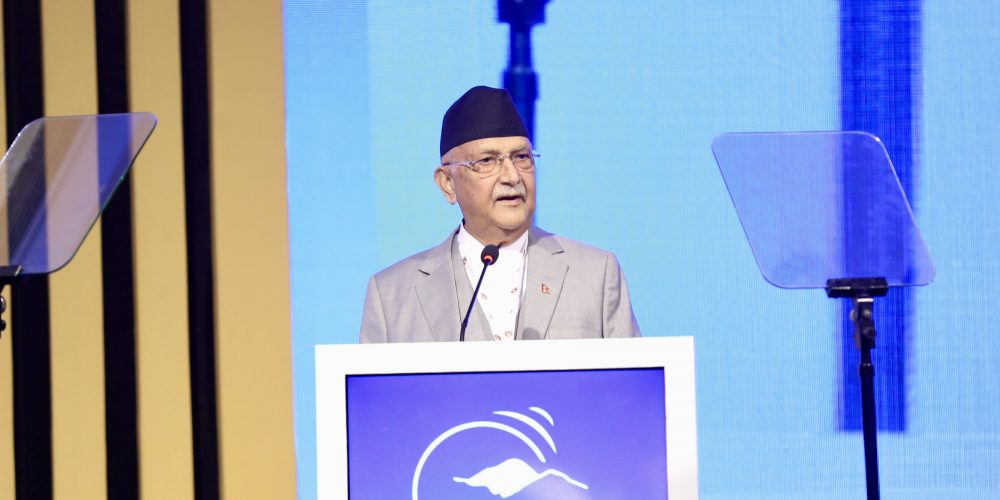 Addressing the inaugural session of the Sagarmatha Sambaad 2025, the Prime Minister KP Sharma Oli said the event was named after the world’s tallest peak Sagarmatha and aimed to create a forum for holding honest dialogues and exchange learning on the issues of climate change, finding collective measures to tackle the crisis.
Addressing the inaugural session of the Sagarmatha Sambaad 2025, the Prime Minister KP Sharma Oli said the event was named after the world’s tallest peak Sagarmatha and aimed to create a forum for holding honest dialogues and exchange learning on the issues of climate change, finding collective measures to tackle the crisis.
The Prime Minister emphasized that protecting the mountains is essential for safeguarding both the planet and humanity.
Highlighting the disproportionate impact on least developed and developing countries, including Nepal, Prime Minister Oli noted that these nations contribute minimally to global emissions yet bear the heaviest burden of climate-induced disasters.
The Prime Minister reiterated Nepal’s call for climate justice, underscoring the urgent need for adequate climate financing and access to technology for vulnerable countries to mitigate and adapt to the impacts of climate change.
Earlier, delivering the opening remarks at the inaugural session of the Sagarmatha Sambaad, Foreign Affairs Minister Dr. Arzu Rana Deuba, welcomed dignitaries, ministers, and delegates from around the world to the dialogue.
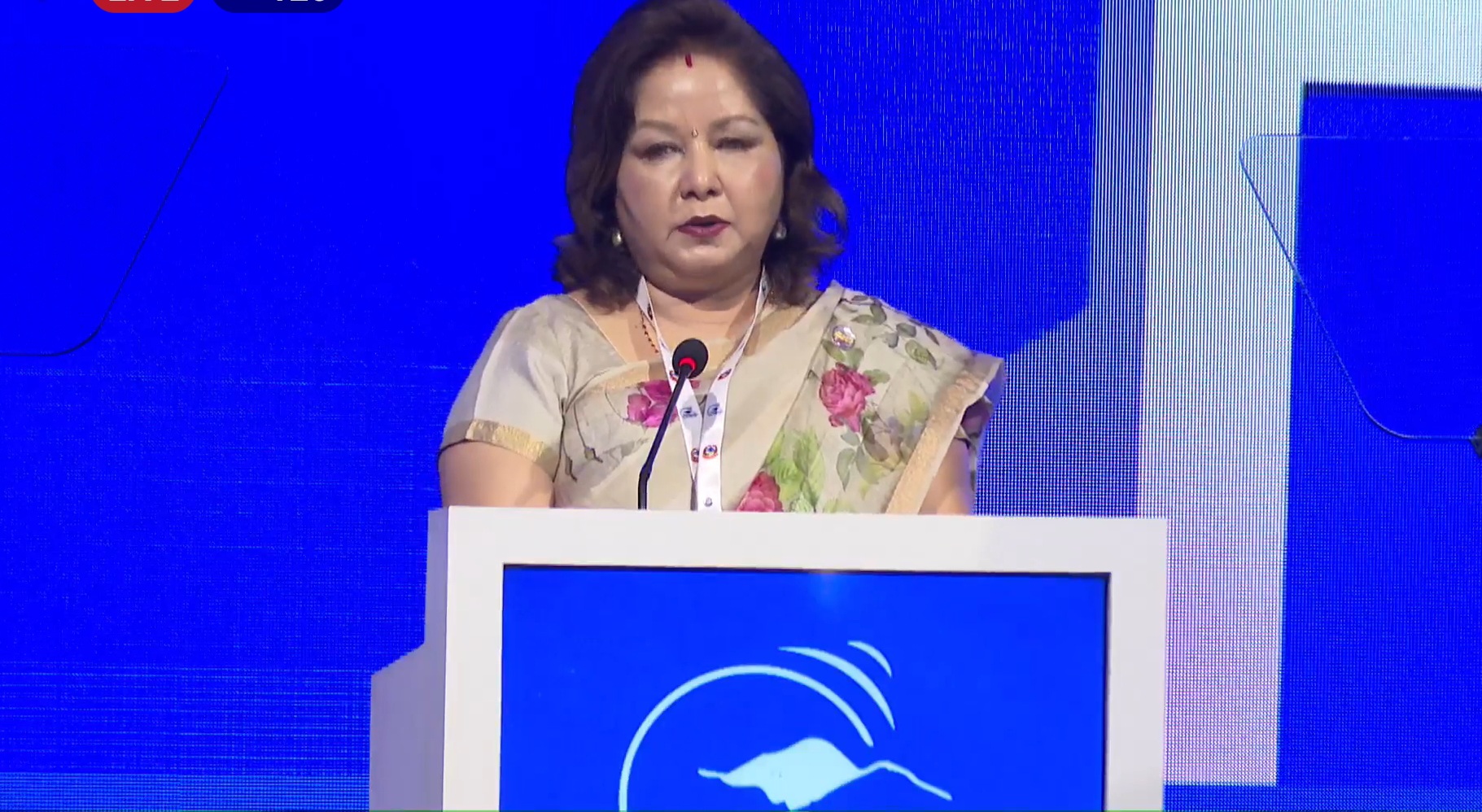 In her keynote address, Foreign Affaris Minister Dr. Rana emphasized the dire climate threats facing Nepal and other mountainous countries.
In her keynote address, Foreign Affaris Minister Dr. Rana emphasized the dire climate threats facing Nepal and other mountainous countries.
Highlighting the accelerating retreat of Himalayan glaciers, increasing incidents of glacial lake outburst floods, and the cascading impacts on mountain communities, Foreign Affairs Minister Dr. Rana called it a “grave injustice” that demands urgent international attention and action.
The Foreign Minister also reaffirmed Nepal’s commitment to achieving net-zero greenhouse gas emissions by 2045, citing progress through hydropower expansion and successful community forestry programs.
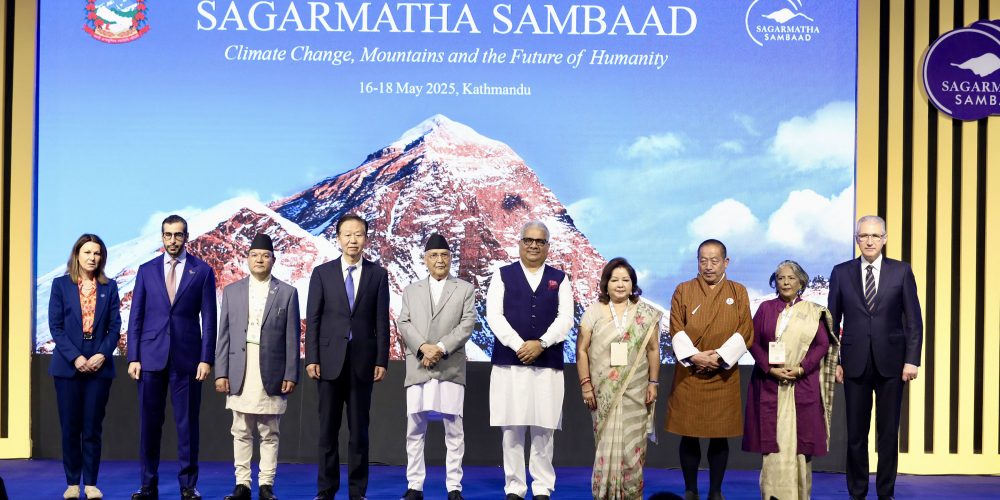 Similarly, At the Sagarmatha Sambaad 2025, India’s Minister for Environment, Forest and Climate Change, Bhupender Yadav, emphasized the growing environmental challenges that mountain nations and their people may face in the future.
Similarly, At the Sagarmatha Sambaad 2025, India’s Minister for Environment, Forest and Climate Change, Bhupender Yadav, emphasized the growing environmental challenges that mountain nations and their people may face in the future.
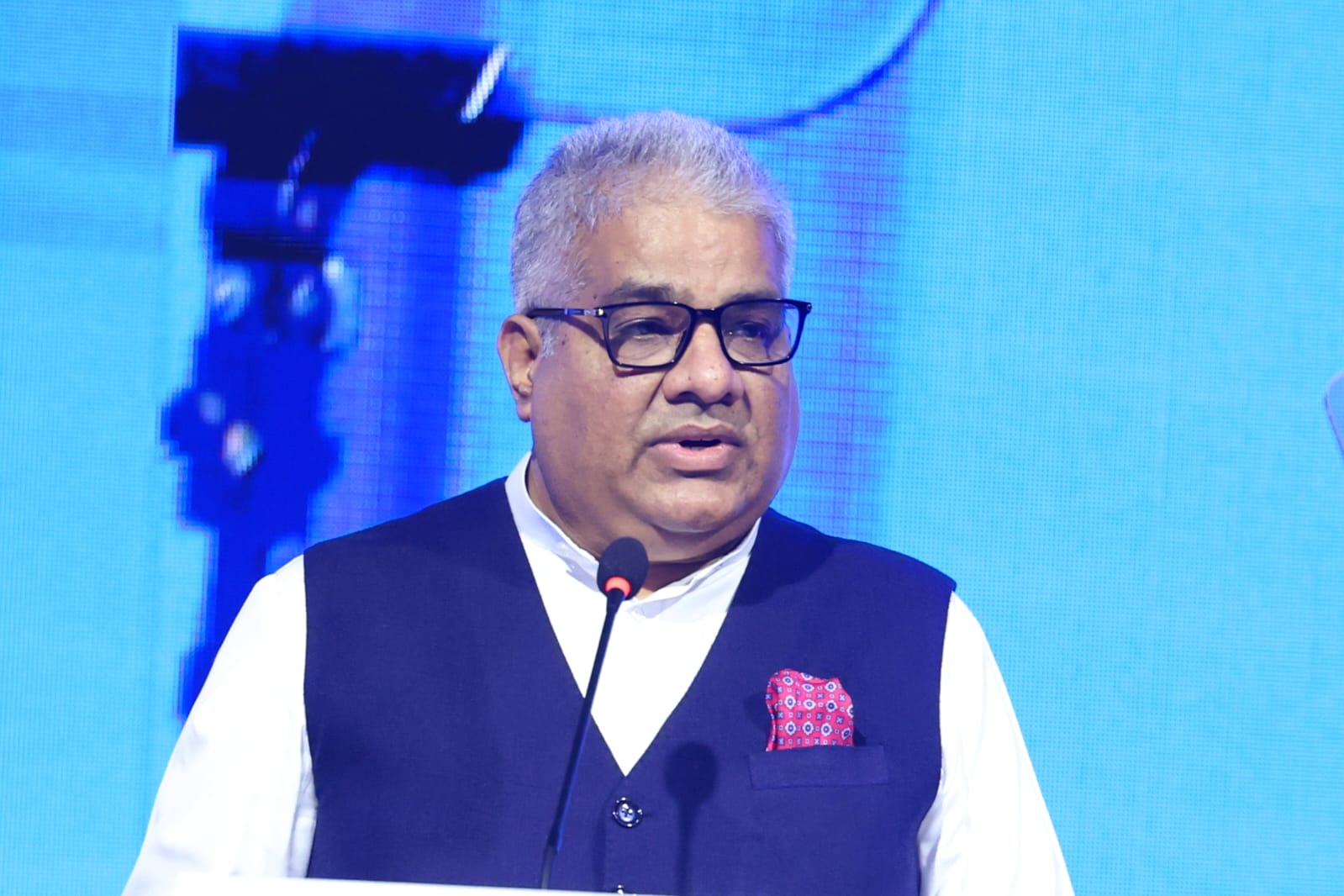 Stressing the need for solidarity, he called on mountainous countries to stand and work together to confront climate-related crises.
Stressing the need for solidarity, he called on mountainous countries to stand and work together to confront climate-related crises.
Highlighting India’s ongoing efforts, Minister Yadav underscored that India’s Nationally Determined Contributions under the Paris Agreement and its National Action Plan on Climate Change reflect the country’s strong and continued commitment to climate action.
Likewise, Xiao Qi, Vice Chair of the Standing Committee of the National People’s Congress (NPC) of China, reaffirmed China’s role as a responsible global power in the fight against climate change.
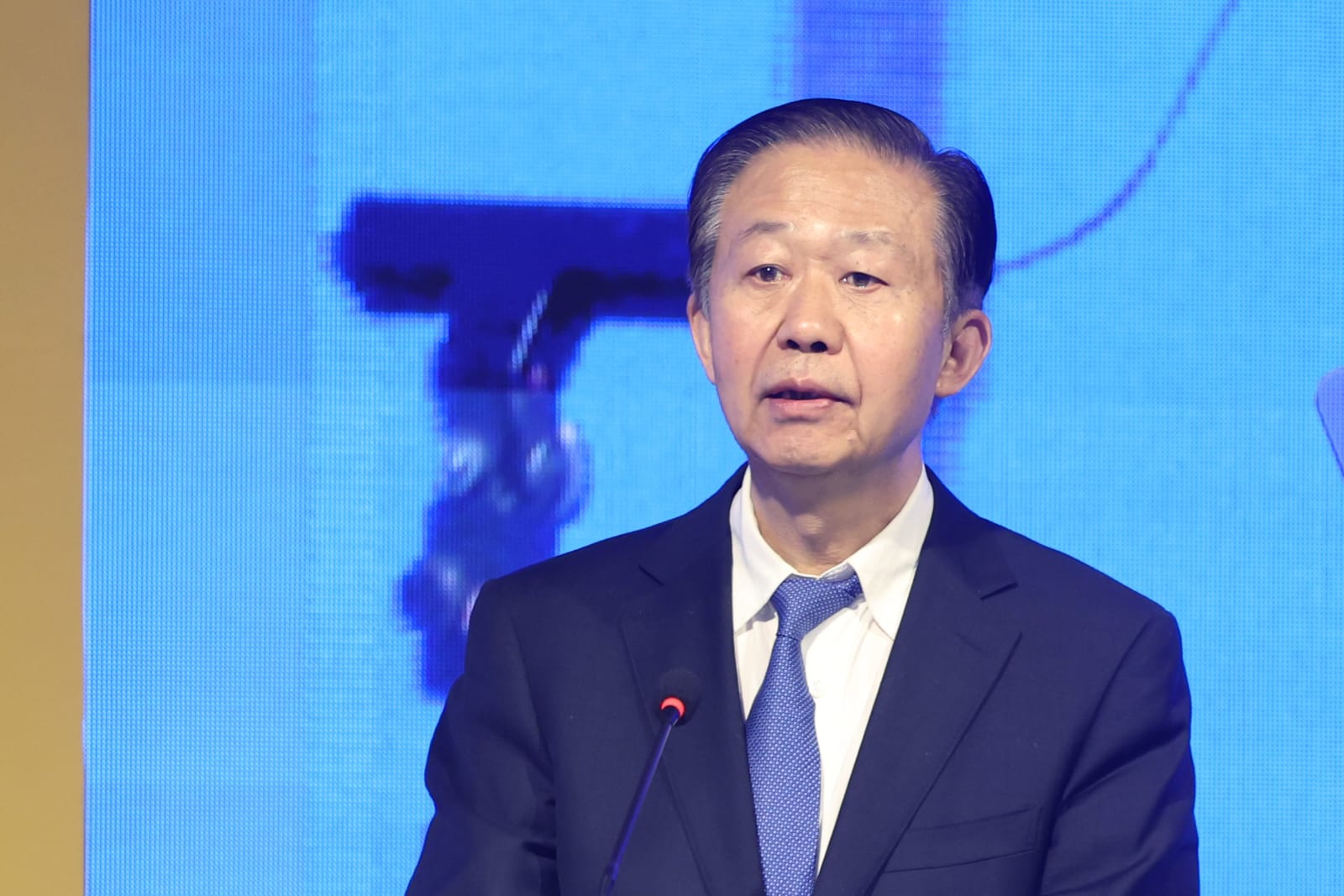 He stated that China remains fully committed to building a sustainable future and will not slow down its climate action. He further emphasized that China will continue to support international cooperation and will work toward building a shared community for all life on Earth.
He stated that China remains fully committed to building a sustainable future and will not slow down its climate action. He further emphasized that China will continue to support international cooperation and will work toward building a shared community for all life on Earth.
In his remarks, Mukhtar Babayev, Presidential Representative of the Republic of Azerbaijan on Climate Issues and President of COP29, highlighted the need for strong political will to ensure climate justice. He called for the mobilization of public finance to support climate mitigation and adaptation efforts, noting that such funding is essential for countries suffering irreversible climate-related damage to find viable alternatives.
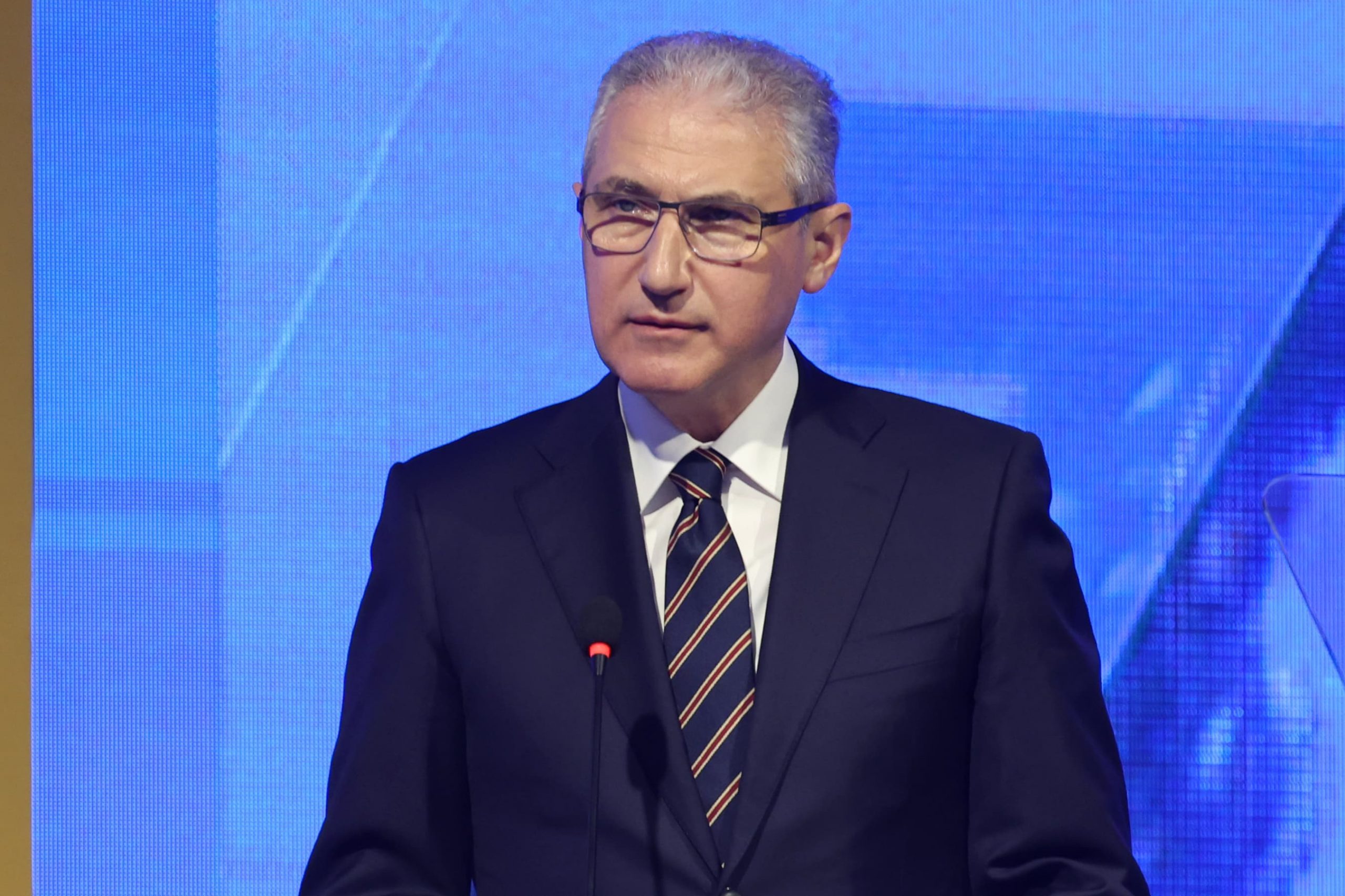 The event also featured a special video message from UN Secretary-General António Guterres, who expressed his solidarity with the Sagarmatha Sambaad and the people of Nepal.
The event also featured a special video message from UN Secretary-General António Guterres, who expressed his solidarity with the Sagarmatha Sambaad and the people of Nepal.
Recalling his visit to Nepal, he voiced concern over rapid glacial melt in the Himalayas, including Mount Everest and Annapurna, and the devastating impact of global warming on the region’s ecosystems.
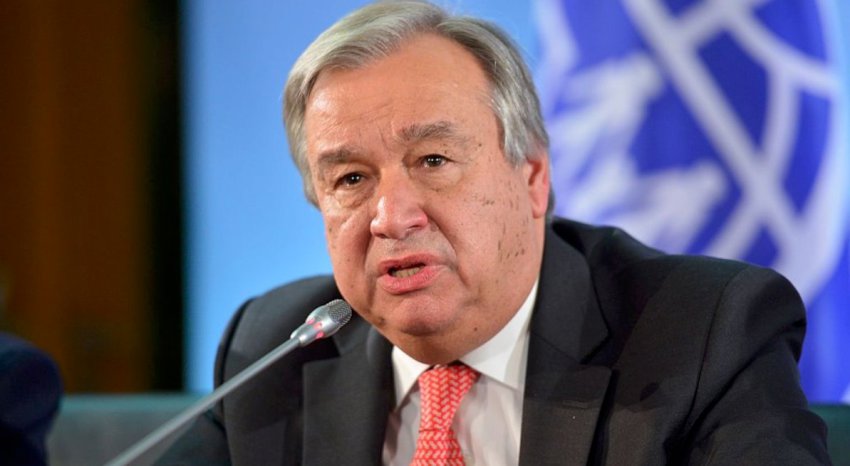 The UN chief praised Nepal’s leadership in climate action, citing its innovative local adaptation planning, its proactive role in the UN’s Early Warning System initiatives, its success in community-led reforestation, and its commitment to achieving net-zero emissions by 2045.
The UN chief praised Nepal’s leadership in climate action, citing its innovative local adaptation planning, its proactive role in the UN’s Early Warning System initiatives, its success in community-led reforestation, and its commitment to achieving net-zero emissions by 2045.
More than 350 national and international distinguished personalities are present at the event.
Parallel thematic sessions are being held after the closing of the inaugural session.




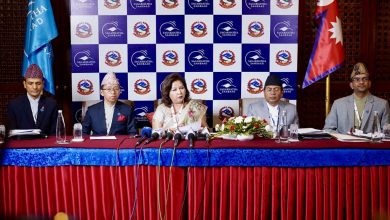
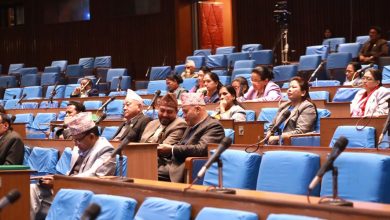
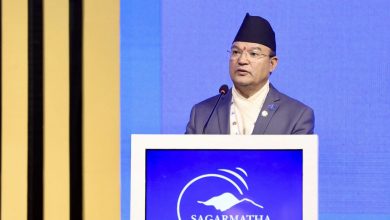
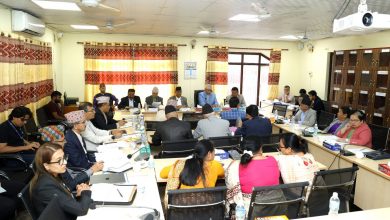
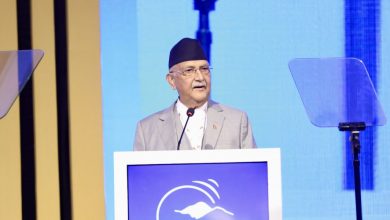
Comments